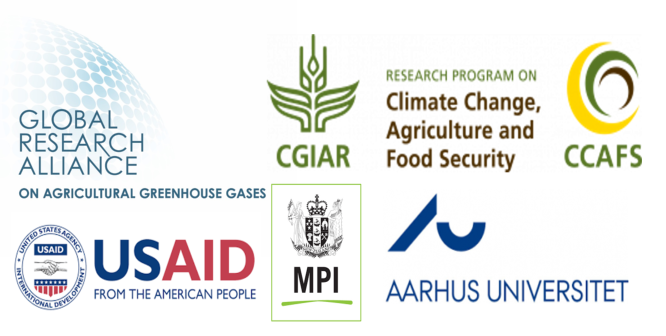CLIFF-GRADS AWARDEES FOR 2020 ANNOUNCED
Thirty-one early-career scientists from 14 developing countries will each receive research scholarships to boost their scientific capability.
The scholarships are being provided by the Climate, Food and Farming Global Research Alliance on Agricultural Greenhouse Gases Development Scholarships programme, or CLIFF-GRADS.
The successful scholarship recipients for 2020 are being announced to coincide with the latest United Nations Climate Change Conference in Madrid. The full list of awardees and their topics of research can be found here.
CLIFF-GRADS is a joint initiative between the Global Research Alliance on Agricultural Greenhouse Gases (GRA) and the CGIAR Research Program on Climate Change, Agriculture and Food Security.
The CLIFF-GRADS programme forms part of New Zealand’s international contribution towards building scientific capability in developing countries. Other funders include the CGIAR Trust Fund donors and the United States Agency for International Development (USAID).
Hayden Montgomery, the special representative of the GRA who is based at MPI, says CLIFF-GRADS enables early-career scientists to undertake research exchanges of up to 6 months at institutions and research centres run by GRA members and partners.
“Through CLIFF-GRADS, the successful students will be hosted by 20 research institutions in 15 countries,” says Mr Montgomery.
“CLIFF-GRADS is becoming more and more competitive, with applications from nearly 300 students from 42 countries.
“The diversity in both the applicants and host supervisors is also growing, which clearly shows the value people are seeing in the programme towards boosting research expertise internationally.”
CLIFF-GRADS gives scientists the opportunity to gain technical skills in agricultural greenhouse gas emissions management and opens the door to an international network of experts that are working toward reducing greenhouse gases from food production.
“Through CLIFF-GRADS, the scientists will research rumen microbiology, rice production, soil science, rangeland management, and other topics,” says Mr Montgomery.
“They’ll gain important hands-on experience with scientific equipment they would not normally have access to, and form global connections with valuable career-long mentors.
“We’d especially like to acknowledge the support of fellow GRA country members and international partners, particularly CCAFS, for supporting these technical training opportunities for students.
“CLIFF-GRADS is a valuable way of boosting scientific expertise around the world and helping in global efforts to drive action to address climate change.”

